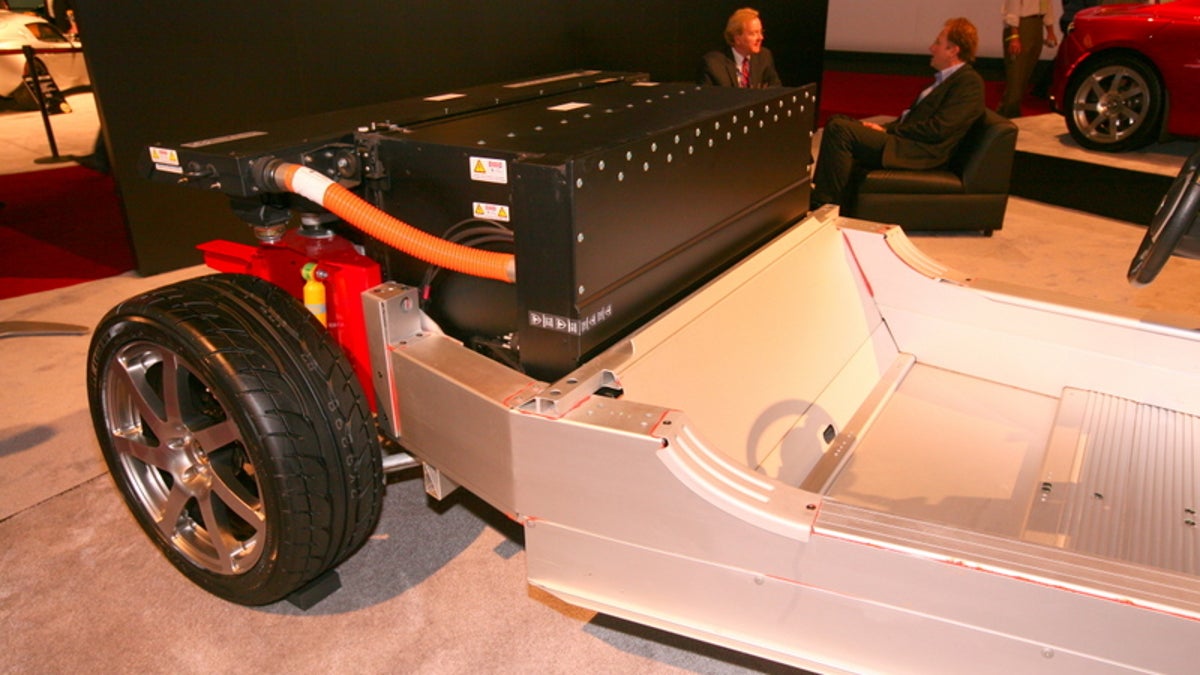Tesla downplays danger of 'bricked' battery
A report says that drained batteries in five Tesla Roadsters required battery pack replacements. Tesla counters that it takes multiple measures to avoid the problem.

If you've invested over $100,000 into a Tesla Roadster, you might want to sign up for an alert to avoid your battery dying.
Electric-car blogs have been buzzing today over a report about a potential problem with Tesla Motors' electric cars that could turn an expensive battery pack into a "brick."
The Understatement blog said that five Roadster owners had their battery charges go to zero and that the only recourse was to replace the $40,000 battery pack. In the one case cited, the batteries died after six weeks of being idle and in another when an extension cord didn't provide sufficient power. The primary source for the bricked battery anecdotes appears to be a Tesla service manager.
In response, Tesla issued a statement indicating that it is possible to run a battery completely down but it takes counter measures to avoid a zero battery "in virtually all instances." The company noted that all batteries are prone to damage if left at zero charge for long periods of time.
From Tesla's statement:
Tesla batteries can remain unplugged for weeks (even months), without reaching zero state of charge. Owners of Roadster 2.0 and all subsequent Tesla products can request that their vehicle alert Tesla if SOC (state of charge) falls to a low level. All Tesla vehicles emit various visual and audible warnings if the battery pack falls below 5 percent SOC. Tesla provides extensive maintenance recommendations as part of the customer experience.
The author of the "bricked" battery blog suggested that Tesla should provide some insurance for owners in case the problem happens, which would also convey the importance of charging.
Nissan, which sells the all-electric Leaf, said that its battery pack never completely discharges. "One element of the battery management system is a failsafe wall that stops the battery from reaching zero state-of-charge, even after a period of unplugged storage. Globally, there are more than 22,000 LEAFs on the road that have driven more than 30 million miles, without any incidents," according to an official statement from Nissan today.
A General Motors representative said the Chevy Volt never runs its battery down to zero. "The Volt does not use all 16 kWh (kilowatt-hours) of charge, it only ever uses a little over 10 kWh of battery power. The battery has a buffer at the lower end of the state of charge to prevent it ever being fully discharged. So this is not an issue for our vehicle," according to GM.
Updated on February 23 with comment from GM.

